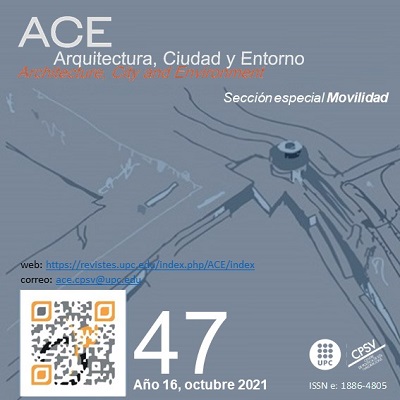In Search of Sustainable, Safe and Inclusive Cities. Critical Contributions from Ergonomics and Design
DOI:
https://doi.org/10.5821/ace.16.47.9691Keywords:
Inclusive Design, service design, blueprint, human-centred designAbstract
There is currently evidence suggesting the urgency of advancing in the (re)design and construction of urban spaces that consider the needs and limitations of citizens and reduce the impact on the environment. Ergonomics (or Human Factors) and User-Centred Design, as disciplines focused on the analysis of human interactions with their environment, can ensure that any artefact, space or service is designed according to the characteristics and human needs and thereby provide better functioning of the systems. This paper aims to present and describe the use of principles, methods and tools of Ergonomics and Inclusive Design and Service Design to analyse urban systems (particularly mobility systems). This discipline and design approaches can contribute, from their human-centred vision and systemic nature to the design of more sustainable, inclusive and safe cities. At the end of the paper, it is described, part of the development and application of the inclusive service blueprint tool as a case study to the analysis of public transport in the Metropolitan Area of Guadalajara, Mexico.
Downloads
Published
Issue
Section
License
| INTELECTUAL PROTECTION CRITERIA |
At this moment, it is count with the "Oficina Española de Patentes y Marcas", while global protection it is being processed by the World Intelectual Property Organization (OMPI/WIPO). Nevertheless the International Standard Serial Number Office (ISSN) has given the following numbers ISSN: 1886-4805 (electronic version) and 1887-7052 (paper version). All articles will be peer reviewed, using double blind reviewing. |
| COPYRIGHT |
The article contents and their comments are authors exclusive liability, and do not reflect necessarily the journal editor commitee's opinion. All ACE published works are subject to the following licence CC BY-NC-ND 3.0 ES http://creativecommons.org/licenses/by-nc-nd/3.0/es/ It implies that authors do not hold nor retain the copyright without restrictions but only those included in the licence. |


































